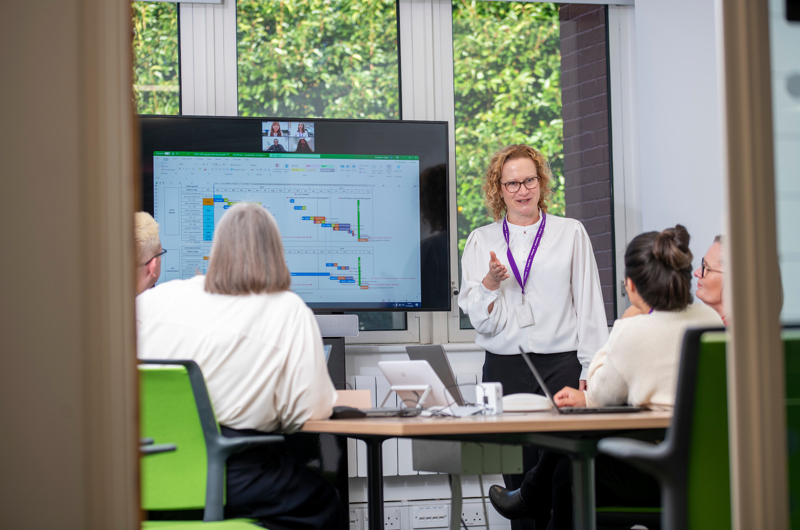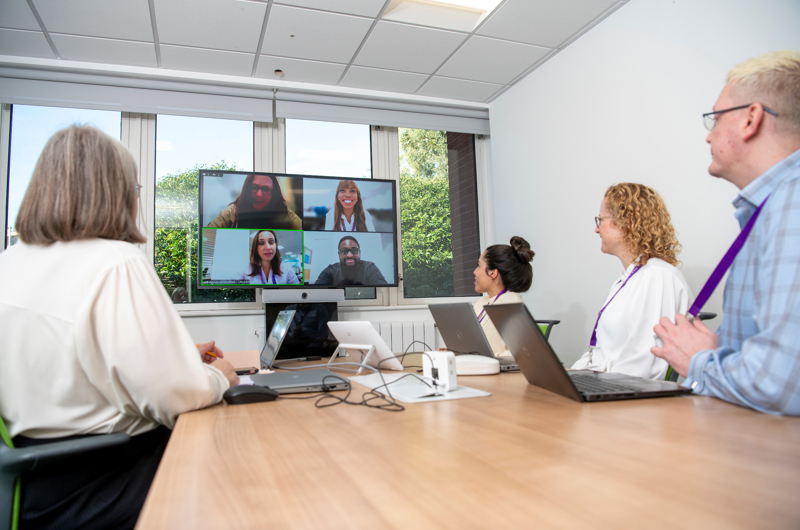Comprehensive Jira implementation across all operational teams, with all work activities properly structured and assigned enabling superior tracking and resolution of customer requests.
How UKSBS successfully implemented agile ways of working
The challenge
When the UKSBS Operations team faced the challenge of improving how they plan and deliver business changes and client change requests for 2025 while navigating resource constraints and limited access to formal PI planning events, they needed a structured approach to change management that wouldn't overwhelm their teams.
The goal was to leverage agile ways of working and Jira tooling to make operational change more adaptive, collaborative and responsive to evolving customer needs.
The mission was clear: support operational teams in their change management journey, improving their planning, prioritisation, and ways of working on customer change activities.


Our approach
Led by Kim Perkins, Agile Coach, and James Cartwright, Operational Excellence (OE) Lead, supported by the OE team, who developed a carefully structured four-phase approach:
Phase One: Planning and fact-finding, including kick-off meetings and mission statement creation. Phase Two: Short-term improvements ahead of the next PI event. Phase Three: Full refinement and long-term improvements. Phase Four: Lessons learned and embedding new ways of working.
Central to the approach was the use of Plan, Do, Study, Act (PDSA) methodology, ensuring continuous improvement throughout the process. The team established robust governance structures including bi-weekly stakeholder meetings, daily syncs, and flexible workshop arrangements with end user feedback loops integrated throughout.
Key deliverables
The transformation delivered significant improvements across multiple areas of operational change management that will ultimately generate value to customers:
The results
The transformation has achieved measurable success with direct benefits for customer service delivery. All Operational Jira boards now have refined features with basic information and proper parent-child relationships. User stories are being created and linked appropriately to reflect the specific work items needed to deliver incremental change, and manual roadmaps have been shared with Heads of Service for ongoing refinement.
Developer Mark Rees reflects on the personal transformation journey: "Well, I wasn't very agile for sure. I had a very fixed mindset." He now appreciates the agile delivery benefits for UKSBS and its customers: "We're delivering in sort of very short iterations... you can deliver that value and put it in front of the user and say have I met your acceptance criteria and they can say yes or no, it's not [a case of] we're going to get the requirements from the user and deliver in six months time and then they tell us that it's not what they want." This approach means our customers can get exactly what they need, when they need it.
The project has established a foundation for future improvements, with the Operations team continuing to improve their ways of working, complete user story refinement and creation, and implement improved dependency and capacity planning via Jira ahead of the October PI event – all focused on delivering better outcomes for our customers.


Lessons learned
Several key insights emerged from the transformation:
Early engagement with teams and leadership proved crucial, with workshops being introduced gradually through multiple forums before formal implementation. The importance of visual aids, particularly Jira plans and manual roadmaps, became clear in facilitating productive discussions, Jira refinement sessions and improving communication with key stakeholders about project progress.
The team also learned to expect and manage scope creep, recognising that agile transformation requires significant time, resources, and support but enables ongoing continuous improvement that keeps customer needs at the centre..
Mark Rees offers practical advice for other teams embarking on similar transformations: "If I was to recommend key concepts to get your heads around, it would be dependencies and user stories – because understanding the specific work activities, and whom you are dependent on to see this work through to completion, helps you deliver real value to your customers faster."
Looking forward
The success in Operations is now being replicated across UKSBS, with other teams now planned for similar agile transformations. The standardisation of approaches developed in Operations will support consistency and efficiency across all implementations, ultimately creating a more responsive, customer-focused organisation.
Future phases will include enhanced customer feedback mechanisms and more sophisticated metrics to measure customer satisfaction improvements resulting from agile delivery methods.
This transformation demonstrates how structured change management, combined with stakeholder engagement and continuous improvement principles, can deliver meaningful organisational improvements even within resource-constrained environments – improvements that translate directly into better customer experiences and more responsive public service delivery.